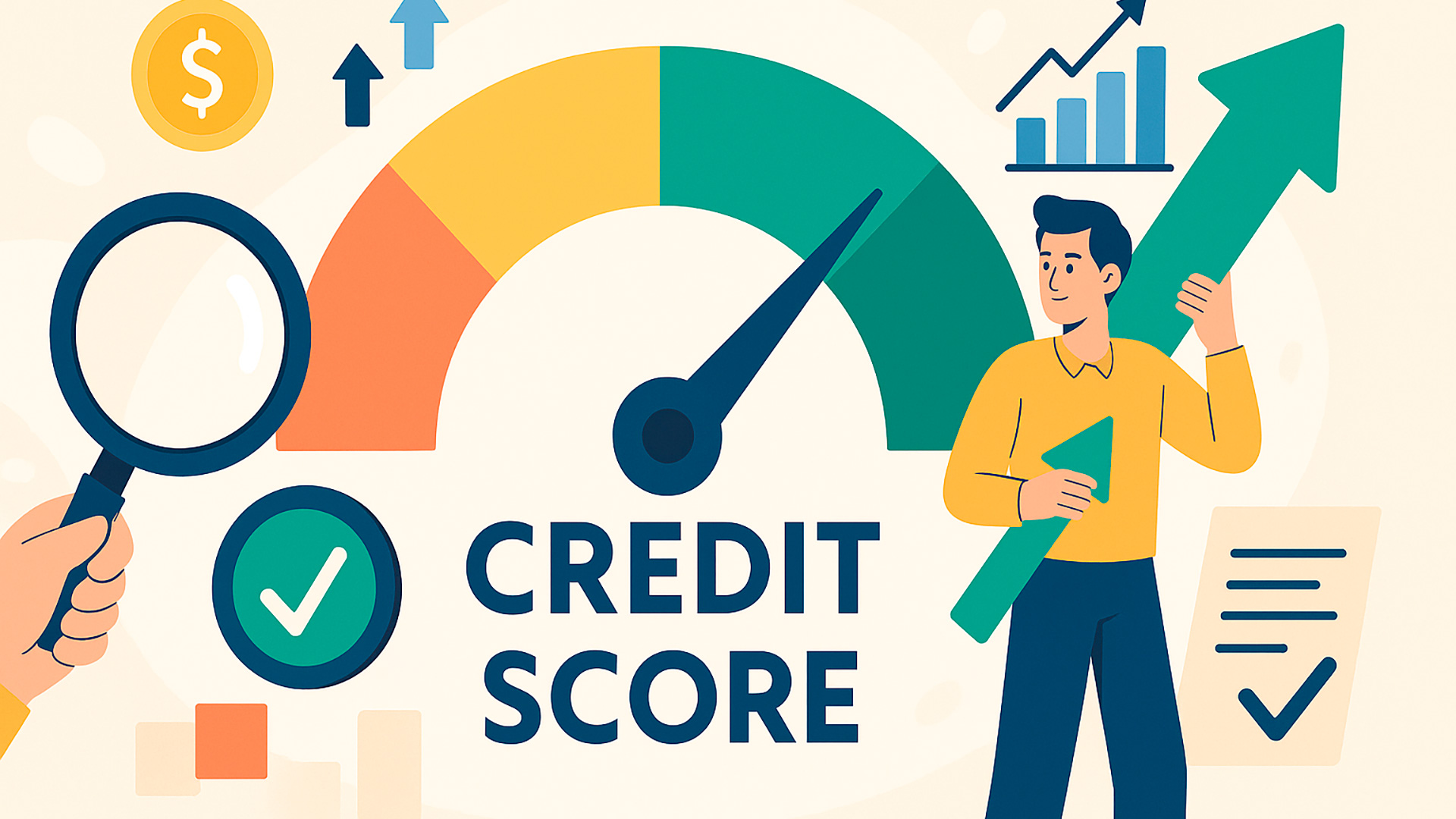
Credit scores hold incredible power. They shape your financial freedom, determine what interest rates you get, and even influence your housing or job opportunities. So when your score drops, the desire to turn things around quickly is completely understandable. That’s why so many people search for ways to fix your credit score fast. Unfortunately, that urgency makes consumers easy targets for scam artists who promise overnight miracles. The good news? There are realistic, proven strategies to rebuild credit quickly—without falling for the traps of shady “credit repair” schemes.
The Truth About Speed and Credit Repair
Let’s start with a reality check. No one can legally erase accurate negative information from your credit report. Late payments, defaults, or collections will stay for up to seven years, though their impact lessens over time. What can change quickly, however, is how lenders interpret your profile. By improving a few key factors—like payment history and credit utilization—you can see noticeable improvements within a few months.
To fix your credit score fast the right way, the focus should be on optimization, not illusion. The credit system rewards consistent, responsible actions, and the right combination of steps can trigger measurable progress in weeks, not years.
Understanding What Influences Your Score
Before taking any action, it’s crucial to understand what actually shapes your score. The FICO model, used by most lenders, is built on five main components. Knowing where to focus your energy prevents wasted effort and helps you act strategically.
| Factor | Weight in Score | How It Impacts You |
|---|---|---|
| Payment History | 35% | Missed payments are the biggest red flag; paying on time has the fastest positive effect. |
| Credit Utilization | 30% | High balances on credit cards drag your score down even if you pay them off monthly. |
| Length of Credit History | 15% | Older accounts add stability, so avoid closing your oldest cards. |
| Credit Mix | 10% | A combination of revolving (credit cards) and installment (loans) accounts is ideal. |
| New Credit | 10% | Too many applications at once can temporarily drop your score. |
By targeting the most heavily weighted areas—payment history and utilization—you can start to fix your credit score fast in a way that lenders actually recognize.
Steps That Deliver Real, Measurable Results
Credit repair isn’t magic—it’s management. The following strategies are straightforward, legitimate, and supported by credit bureaus themselves. Implementing even a few of these steps can yield results within one or two billing cycles.
1. Pay Down Balances Strategically
Your credit utilization rate—the percentage of available credit you’re using—is one of the easiest factors to change quickly. Ideally, it should stay below 30%, but if you can reduce it to under 10%, your score will improve faster. Start by paying down revolving credit lines first, especially cards close to their limit.
- Make small payments throughout the month (known as “micropayments”) to keep your balance low at all times.
- Ask your lender for a credit limit increase—just avoid spending more afterward.
- Transfer part of your balance to another card to lower individual utilization.
2. Correct Reporting Errors
Credit reports aren’t perfect. A Federal Trade Commission study found that 1 in 5 consumers has at least one error on their report. Checking for mistakes is one of the fastest ways to fix your credit score fast because corrections can lead to immediate improvements.
- Get free copies of your reports from AnnualCreditReport.com.
- Dispute inaccuracies directly with the credit bureaus (Equifax, Experian, and TransUnion).
- Include documentation to support your claim—receipts, payment confirmations, or correspondence with lenders.
- Follow up within 30 days; bureaus are legally required to investigate and respond.
3. Make Every Payment Count
Payment history has the heaviest impact on your credit score. Setting up automatic payments eliminates the risk of forgetting. Even a single late payment can cost up to 100 points, depending on your score level. If you’ve already missed one, contact your creditor immediately—some will offer a one-time courtesy adjustment for long-term customers with otherwise clean histories.
4. Use Experian Boost or Rent Reporting Tools
Modern credit systems now allow consumers to get recognition for payments that were once ignored. Services like Experian Boost or StellarFi let you add utilities, rent, and subscription payments to your credit file. This can provide an instant bump, especially if you have limited credit history.
Common Scams and False Promises to Avoid
When people are desperate to rebuild their score, scammers step in with “too-good-to-be-true” offers. Knowing how to identify and avoid these traps is just as important as taking the right steps toward improvement.
- “Guaranteed score increase” claims: No company can legally promise a specific point increase.
- Paying upfront fees: Under U.S. law, legitimate credit repair organizations can’t charge before performing services.
- Creating a new identity (CPN scams): Fraudulent “credit privacy number” schemes are illegal and can lead to criminal charges.
- Disputing all items on your report: Some services send mass disputes for accurate information, which can backfire and lower your credibility with lenders.
If you decide to hire help, make sure the company complies with the Credit Repair Organizations Act (CROA) and provides a written contract outlining your rights.

Red Flags of Credit Repair Scams
| Red Flag | What It Means | Better Alternative |
|---|---|---|
| Promises “instant” or “guaranteed” results | Misleading marketing that violates federal law | Seek services that offer realistic timeframes |
| Demands full payment upfront | Likely operating outside legal guidelines | Look for pay-as-you-go or cancel-anytime models |
| Advises using a CPN or fake identity | Criminal fraud, can lead to prosecution | Stick to legitimate dispute and reporting channels |
| Refuses to explain your rights | Violation of CROA consumer protection laws | Ask for documentation and transparency |
Realistic Timelines for Credit Improvement
Even with consistent effort, improvement doesn’t happen overnight. However, many people start to see noticeable results in just a few months, especially if they focus on reducing balances and paying bills on time. Below is a realistic timeline for measurable changes when trying to fix your credit score fast.
| Timeframe | Key Actions | Expected Results |
|---|---|---|
| 1–2 Weeks | Review credit reports, dispute errors, and make first payments toward balances | Minor score improvement as updates process |
| 1–2 Months | Lower utilization below 30%, add positive payment history | Moderate increase (20–60 points possible) |
| 3–6 Months | Consistent on-time payments and responsible usage | Significant improvement; more favorable loan terms |
This steady approach avoids shortcuts and focuses on sustainable progress. Remember, the goal isn’t just to raise your score quickly—it’s to build habits that keep it high for years to come.
Mindset and Discipline: The Real Keys to Success
Credit recovery isn’t just a numbers game—it’s a mindset shift. Patience and consistency beat panic-driven actions every time. Treat your credit as an ongoing relationship, not a quick repair project. Monitor your reports regularly, keep balances manageable, and view every payment as a step toward long-term financial freedom.
Even if you make small improvements—like cutting credit usage from 70% to 40%—those actions compound over time. Staying proactive ensures you’ll never have to “fix your credit score fast” again because your score will naturally stay strong.
Building Credit the Right Way Pays Off
It’s absolutely possible to fix your credit score fast without falling for empty promises or illegal shortcuts. The fastest path is often the most practical one: paying down debt, correcting errors, and managing credit wisely. Scammers thrive on desperation, but knowledge and discipline keep you in control. Real improvement may not be instant, but it’s steady, legitimate, and lasting—and that’s what truly counts when building your financial future.
